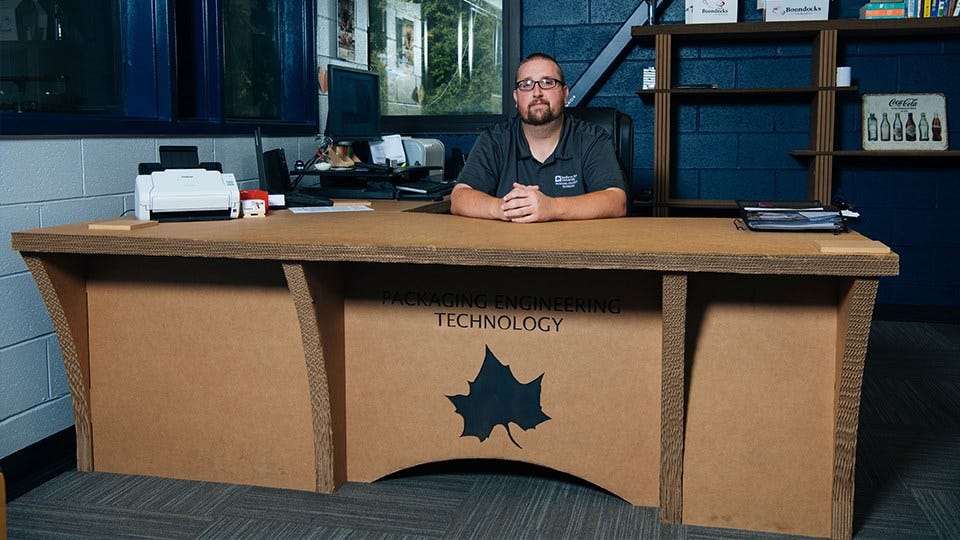ISU Program Targets Packaging Engineering Talent Gap
 Brian James heads up the Packaging Engineering Technology program. (Provided Photo/Indiana State University)
Brian James heads up the Packaging Engineering Technology program. (Provided Photo/Indiana State University)
Subscriber Benefit
As a subscriber you can listen to articles at work, in the car, or while you work out. Subscribe NowIndiana State University is one of the few higher education institutions in the United States working to fill the talent gap in a relatively unknown, but in-demand industry. Instructor Brian James says the demand for jobs in the industry is so high, the university’s Packaging Engineering Technology program has a 100% placement rate. The program teaches students techniques on packaging design with a variety of materials, as well as how to test packaging to ensure the safety of products being shipped, among other topics.
In an interview with Inside INdiana Business, James said despite the program’s success, the university has struggled with organic enrollment.
"Our program is one of that we have a huge industry; we have a lot of industry involvement and a lot of industry people doing things with our students, but we don’t have a lot of students organically coming into the program," said James. "A lot of our students switch from other programs once they’re at State or even at Ivy Tech, but our program’s one of those that — I wouldn’t say it’s hidden in any way — it’s just not talked about."
James says, for every student that graduates from every packaging engineering technology program in the U.S., there are about 17-20 open positions. He says the program recently received a more than $120,000 from the International Corrugated Packaging Foundation, which the university will use to increase marketing for the program and sending student ambassadors to high schools, and eventually middle schools, to talk with students about the program and the job opportunities it could lead to.
"(We want to) not really try to persuade them into packaging or anything like that, but let them know that this in an option. This is an entire industry that is as large as or bigger than most of the other degrees that you can get. With that (grant), we’ve already grown about 15 to 20 percent from our organic students coming into the program, so it’s been very helpful. We’re expecting much larger gains in the next year so that we can enough students out to the industry and be able to make it to where the industry has enough students in a pipeline to fill the positions that they’ve got."
James says they’ve seen students who have served as interns or graduates who have moved on to full-time jobs and created cost savings for companies of up to $1.1 million through a variety of initiatives, such as distribution route improvements, material savings, and safety improvements. He says those types of techniques are learned through the program.
The program also recently received a $1.2 million in-kind gift from software provider Esko. The university says the gift includes annual licensing for the program’s design and production software platforms.
James says despite the program’s success, the university has struggled with organic enrollment.
